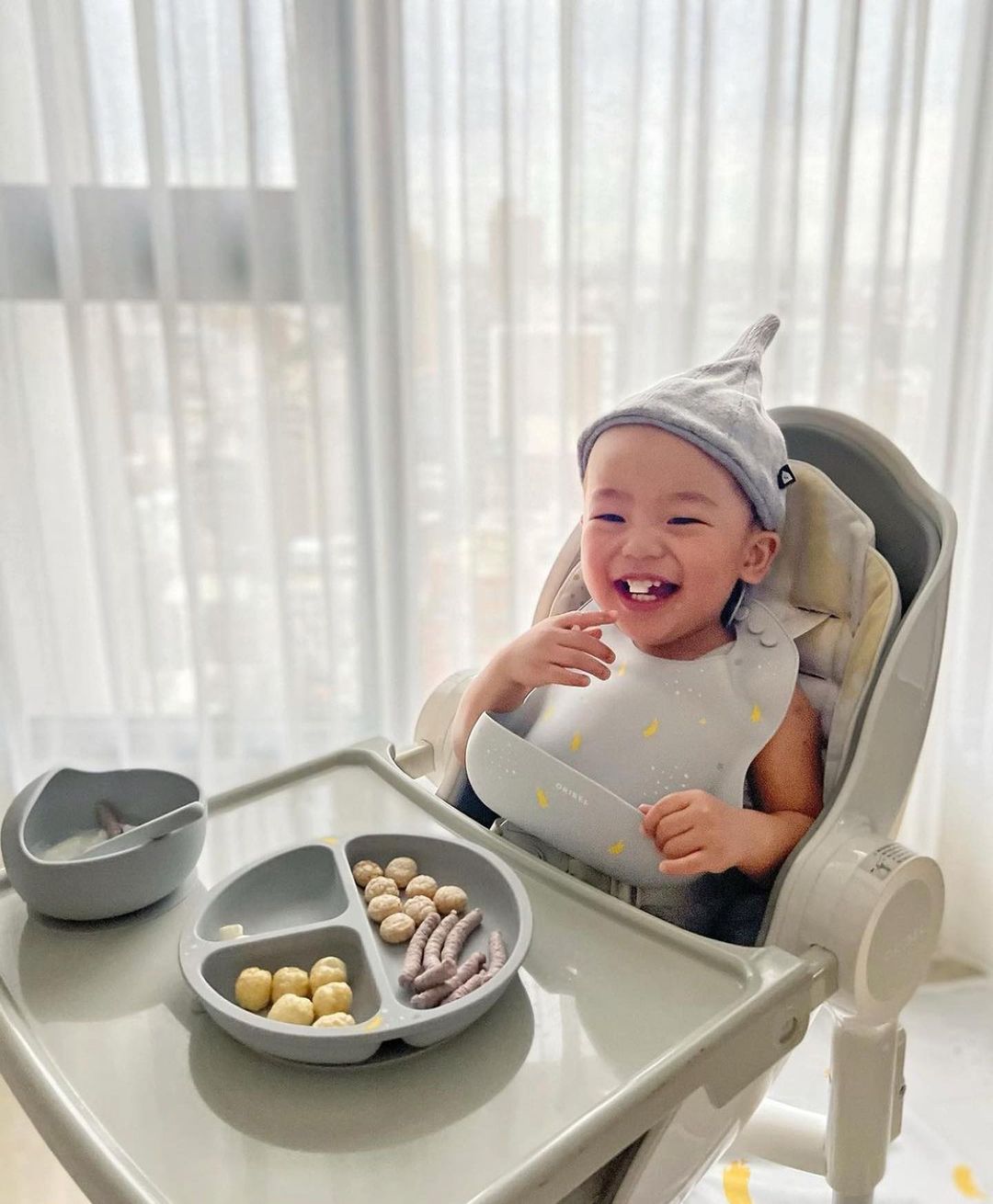Starting solids: Here's what to do!
At 6 months, most babies are ready to delve into the exciting world of solid food, full of new textures, colours and flavours. As they say, baby knows best. So while 6 months is the recommended age, your baby may give you some signs when he or she is ready to start solids. These include being able to sit up in a high chair and hold the head upright with minimal support, curiosity and interest in food that others are eating and appearing hungry after a milk feed.
However, solids don’t replace milk all at once, so doctors recommend starting with very small amounts at first, just 1 to 2 tablespoons in the beginning. As you know, baby food is initially soft, smooth and finely puréed. As your child grows, at around 10 months this can change to three meals of solid food that is mashed or finely chopped. Since food at this stage is mostly boiled and steamed and must be without oil and seasonings, it’s a good idea to have a steamer, hand blender and sieve to make it easier to cook your baby’s meals.
As parents ourselves, we know that while starting solids is a lovely new milestone in your baby’s growth, it can also be challenging. We have some tips to make this emotionally easier! Go easy on yourself as every baby is different and it can take some time to know what your baby does and does not like. Introduce a new food every three or four days and take it from there.
Here are a few more things that will help both you and baby adjust to this new phase.

A sturdy feeding high chair like the Cocoon Z! With its three recline angles, it’s the ideal adjustable high chair for when your baby starts solids. It has a high back and extra lumbar support to make mealtimes comfy. The height can easily be adjusted so your child’s feet are planted properly on the sturdy footrest and the padded EVA seat is not only comfortable, it’s a breeze to clean. When your child starts self-feeding, you can easily move the Cocoon Z up to the dining table for family meal times!
A mealtime routine as early as 6 months will help get your baby settled into the idea of regular meals even if the meals themselves are not elaborate. Set a time for breakfast, lunch and dinner and preferably, feed your baby at the same place for each one. It’s not always possible to stick to a routine of course, but that’s all right!
A distraction-free environment without screens or other entertainment is best, especially in the early stages of starting solids. It helps your baby focus on the food and helps you understand preferences and patterns.

A sturdy baby serveware set like the one we’ve recently introduced which is perfect on the Cocoon Z’s large feeding tray. A bib to catch spills, plates and bowls with suction bases so they won’t tip over when little hands reach for them as well as soft and easy-to-use cutlery. Baby serveware should naturally be made of safe materials and be gentle on developing gums and teeth.
A little flexibility will go a long way in making the transition to solids easier on you and your baby. It’s ok if not everything on the plate is eaten or if your baby is more interested in one meal over another. Have fun with it and as your baby discovers the wonder of new food, you will too!
We’d love to know how things went for your baby and you when starting solids. What did you do differently? And if there’s something you try from this article, let us know how it goes! Write to us at wecare@loveoribel.com.


